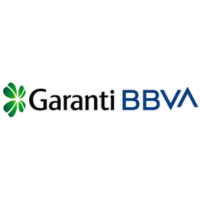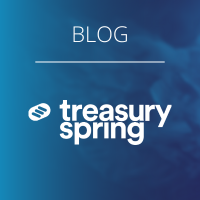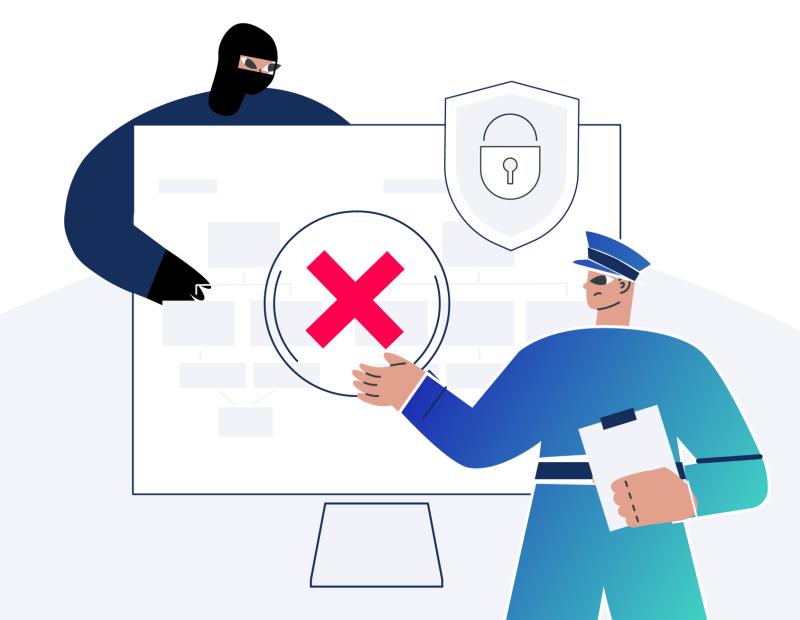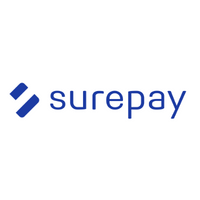Win-win: simplify the fraud audit process and help your accountant
By SurePay
As a Financial Controller, CFO, or Treasurer, you do not sit in the auditor’s chair. However, the question of whether these external auditors should be solely responsible for financial transactions remains. Especially now that it’s becoming easier to check transactions, you can easily create a win-win situation. The IBAN-Name Check simplifies checks and makes it easier to detect fraud, all while relieving your accountant of the workload.
As a Financial Controller, you’re responsible for overseeing the internal financial processes. For example, you confirm that the financial reports are correct. And are you a CFO? Then you have a strategic role as well as overseeing the overall financial policy. As a Treasurer you are responsible for managing cash and monitoring financial risks. In all three circumstances you are not an auditor, but you do have the same amount of control over financial fraud.
Different responsibilities, but the same goal
Each has their own responsibilities, which means the (external) auditor plays a different role from you as a Financial Controller, CFO or Treasurer. Nonetheless, you all share the same goals, which is to prevent financial fraud. If you can help each other in this, you will save time and effort on both sides while reducing the amount of fraudulent incidents the organisation faces.
Auditors have to evaluate the financial information that your organisation provides. It’s their responsibility to make sure that this information accurately reflects the organisation’s financial status. More specifically, since the financial year 2022, auditors have to include information on fraud and ongoing concerns in the audit report they create. This means that the auditor holds a significant (social) responsibility in the prevention and mitigation of fraud.
Help your accountant with IBAN-Name Check
Fraud prevention brings together the accountant’s responsibility and the objective of your organisation. To help your accountant, use the IBAN-Name Check.
The tool is simple and measurable. It works like this:
- Verify if the name and the IBAN match. Is there no match or is it a close match? SurePay will notify you so you can figure out what’s going on.
- Check the number of account holders linked to an IBAN, such as whether someone is co-signing for financial products. If necessary, you can request the information of other account holders.
You can quickly keep track of all payments or set up single checks, such as checking IBANs and names for a month. This allows you to track down any internal or external fraudulent behaviour that could otherwise be costly to the organisation, while also gathering evidence that can help the auditors. This is how you help the auditor in reducing fraud and protect the organisation from financial risks
How does it work?
A single check using the IBAN-Name Check is quite simple and straightforward. Enter the IBAN and the name of the account holder. SurePay checks the information and will tell you whether there is a ‘match’, a ‘close match’ (e.g. in case of a spelling mistake) or ‘no match’. In the latter scenario, fraudulent activity could have taken place, for example, a fraudster provided a false name alongside the account number.
For additional checks, use the IBAN-Name Check in our Portal. Alternatively, you can use our API to check all payments or perform large-scale checks. You can even perform a File Check, which allows you to examine full data files for potential fraud.
Wondering how that works?
Find out for yourself and sign up for 50 free checks.
Click and Scroll! Here are more articles that you might like…
 https://treasuryxl.com/wp-content/uploads/2024/01/Template_VACANCY-featured.png
200
200
treasuryXL
https://treasuryxl.com/wp-content/uploads/2018/07/treasuryXL-logo-300x56.png
treasuryXL2026-02-27 07:00:272026-02-26 14:56:40Vacancy Treasury Analyst – Utrecht
https://treasuryxl.com/wp-content/uploads/2024/01/Template_VACANCY-featured.png
200
200
treasuryXL
https://treasuryxl.com/wp-content/uploads/2018/07/treasuryXL-logo-300x56.png
treasuryXL2026-02-27 07:00:272026-02-26 14:56:40Vacancy Treasury Analyst – Utrecht https://treasuryxl.com/wp-content/uploads/2026/02/Live-Session-ETR-Digital.png
200
200
treasuryXL
https://treasuryxl.com/wp-content/uploads/2018/07/treasuryXL-logo-300x56.png
treasuryXL2026-02-26 11:49:192026-02-26 11:51:12Live Session: The New Way Treasurers Are Managing Payables – Old Tool, New Tricks
https://treasuryxl.com/wp-content/uploads/2026/02/Live-Session-ETR-Digital.png
200
200
treasuryXL
https://treasuryxl.com/wp-content/uploads/2018/07/treasuryXL-logo-300x56.png
treasuryXL2026-02-26 11:49:192026-02-26 11:51:12Live Session: The New Way Treasurers Are Managing Payables – Old Tool, New Tricks https://treasuryxl.com/wp-content/uploads/2025/10/Garanti-BBVA.png
200
200
treasuryXL
https://treasuryxl.com/wp-content/uploads/2018/07/treasuryXL-logo-300x56.png
treasuryXL2026-02-26 08:55:122026-02-26 09:00:51ALM Professional @ Garanti BBVA International
https://treasuryxl.com/wp-content/uploads/2025/10/Garanti-BBVA.png
200
200
treasuryXL
https://treasuryxl.com/wp-content/uploads/2018/07/treasuryXL-logo-300x56.png
treasuryXL2026-02-26 08:55:122026-02-26 09:00:51ALM Professional @ Garanti BBVA International https://treasuryxl.com/wp-content/uploads/2025/10/Garanti-BBVA.png
200
200
treasuryXL
https://treasuryxl.com/wp-content/uploads/2018/07/treasuryXL-logo-300x56.png
treasuryXL2026-02-26 08:47:112026-02-26 08:56:21ALM Associate @ Garanti BBVA International
https://treasuryxl.com/wp-content/uploads/2025/10/Garanti-BBVA.png
200
200
treasuryXL
https://treasuryxl.com/wp-content/uploads/2018/07/treasuryXL-logo-300x56.png
treasuryXL2026-02-26 08:47:112026-02-26 08:56:21ALM Associate @ Garanti BBVA International https://treasuryxl.com/wp-content/uploads/2026/02/DMFCO.png
200
200
treasuryXL
https://treasuryxl.com/wp-content/uploads/2018/07/treasuryXL-logo-300x56.png
treasuryXL2026-02-26 08:26:152026-02-26 09:00:42Analist Capital Markets @ DMFCO Asset Management
https://treasuryxl.com/wp-content/uploads/2026/02/DMFCO.png
200
200
treasuryXL
https://treasuryxl.com/wp-content/uploads/2018/07/treasuryXL-logo-300x56.png
treasuryXL2026-02-26 08:26:152026-02-26 09:00:42Analist Capital Markets @ DMFCO Asset Management https://treasuryxl.com/wp-content/uploads/2025/04/Treasury-Spring-van-Template-2.png
200
200
treasuryXL
https://treasuryxl.com/wp-content/uploads/2018/07/treasuryXL-logo-300x56.png
treasuryXL2026-02-26 07:00:212026-02-25 15:33:53Rollercoaster markets as rates stay on hold
https://treasuryxl.com/wp-content/uploads/2025/04/Treasury-Spring-van-Template-2.png
200
200
treasuryXL
https://treasuryxl.com/wp-content/uploads/2018/07/treasuryXL-logo-300x56.png
treasuryXL2026-02-26 07:00:212026-02-25 15:33:53Rollercoaster markets as rates stay on hold https://treasuryxl.com/wp-content/uploads/2023/03/Treasurer-Search-Logo.png
200
200
treasuryXL
https://treasuryxl.com/wp-content/uploads/2018/07/treasuryXL-logo-300x56.png
treasuryXL2026-02-25 14:32:182026-02-25 14:32:18Treasury Analyst @ Treasurer Search
https://treasuryxl.com/wp-content/uploads/2023/03/Treasurer-Search-Logo.png
200
200
treasuryXL
https://treasuryxl.com/wp-content/uploads/2018/07/treasuryXL-logo-300x56.png
treasuryXL2026-02-25 14:32:182026-02-25 14:32:18Treasury Analyst @ Treasurer Search https://treasuryxl.com/wp-content/uploads/2025/02/LSEG-BLOGS-featured-13.png
200
200
treasuryXL
https://treasuryxl.com/wp-content/uploads/2018/07/treasuryXL-logo-300x56.png
treasuryXL2026-02-25 07:00:572026-02-25 07:22:58Lookback 2025: Volatility and technology drive pricing trends
https://treasuryxl.com/wp-content/uploads/2025/02/LSEG-BLOGS-featured-13.png
200
200
treasuryXL
https://treasuryxl.com/wp-content/uploads/2018/07/treasuryXL-logo-300x56.png
treasuryXL2026-02-25 07:00:572026-02-25 07:22:58Lookback 2025: Volatility and technology drive pricing trends https://treasuryxl.com/wp-content/uploads/2026/02/Nomentia-BLOGS-featured.png
200
200
treasuryXL
https://treasuryxl.com/wp-content/uploads/2018/07/treasuryXL-logo-300x56.png
treasuryXL2026-02-24 07:00:562026-02-23 16:40:30Nomentia Treasury Trends Report 2026
https://treasuryxl.com/wp-content/uploads/2026/02/Nomentia-BLOGS-featured.png
200
200
treasuryXL
https://treasuryxl.com/wp-content/uploads/2018/07/treasuryXL-logo-300x56.png
treasuryXL2026-02-24 07:00:562026-02-23 16:40:30Nomentia Treasury Trends Report 2026



